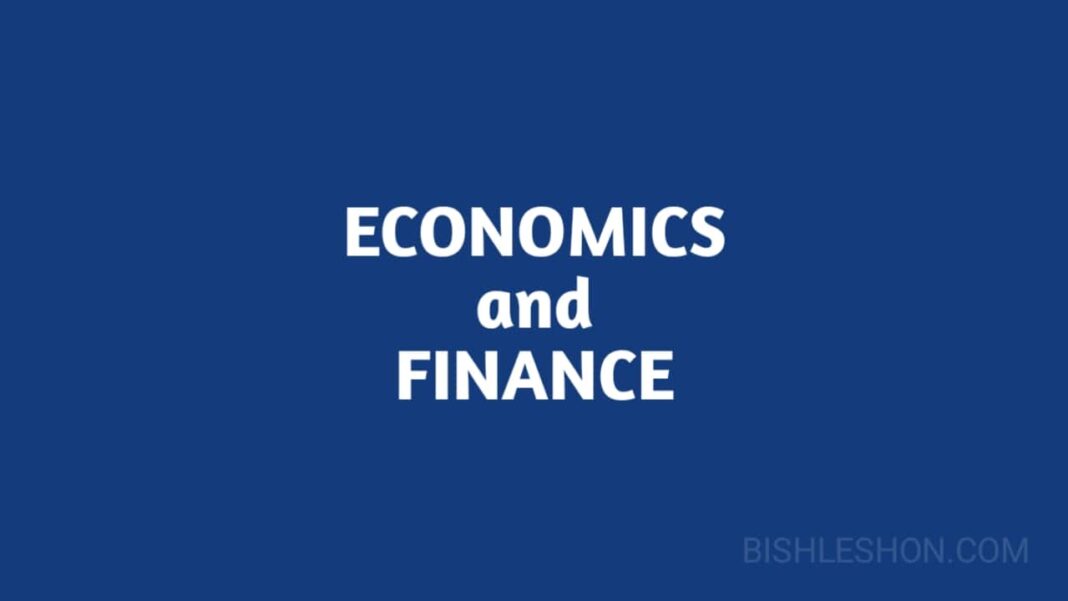The fields of economics and finance are often intertwined, with many people assuming that they are interchangeable terms. However, while there is some overlap between these two disciplines, they are distinct fields of study that focus on different aspects of the economy. In this article, we will explore the differences between economics and finance, as well as the ways in which they are related.
Table of contents
The Scope of Economics and Finance
Economics is a broad field that studies how individuals, businesses, governments, and societies allocate resources. It examines a range of issues, including the behavior of individuals and groups, market structures, public policy, and global trade. Finance, on the other hand, focuses specifically on the management of money and assets. It includes topics such as investments, financial markets, and financial institutions.
Theoretical vs. Practical Focus
Economics is a primarily theoretical field, meaning that it is concerned with developing and testing theories about how the economy works. It uses mathematical models and statistical methods to analyze data and make predictions about economic outcomes. Finance, on the other hand, is a more practical field that focuses on the application of economic principles to real-world problems. It is concerned with making decisions about how to allocate and manage financial resources in order to maximize returns.
Macro vs. Micro Perspectives
Economics can be divided into two main subfields: macroeconomics and microeconomics. Macroeconomics focuses on the economy as a whole, including topics such as inflation, unemployment, and economic growth. Microeconomics, on the other hand, focuses on the behavior of individuals and firms, and the interactions between them. Finance, while it may draw on both macroeconomic and microeconomic principles, tends to be more focused on the micro level, as it is concerned with the management of individual assets and investments.
Policy vs. Practice
One of the key differences between economics and finance is their focus on policy versus practice. Economics is often concerned with public policy and the ways in which government intervention can affect the economy. Finance, on the other hand, is more concerned with practical decision-making, such as how to allocate funds or invest in specific assets.
Academic vs. Professional Focus
Another difference between economics and finance is their academic versus professional focus. Economics is primarily an academic field, with many economists working in research and teaching roles at universities and think tanks. Finance, on the other hand, is more closely tied to the business world, with many finance professionals working in banking, investment management, and other financial services industries.
The Relationship between Economics and Finance
While economics and finance are distinct fields of study, there are many areas of overlap between them. For example, finance draws heavily on economic theory and methods in order to make investment decisions and manage financial risk. Similarly, economic theory is often used to inform public policy decisions related to finance and financial markets. In addition, many economists work in finance-related fields, such as investment banking or financial consulting.
Career Opportunities in Economics and Finance
Both economics and finance offer a range of career opportunities for those with an interest in these fields. Graduates with a degree in economics may pursue careers in research, teaching, or public policy, while those with a background in finance may work in banking, investment management, or financial consulting. Many careers in these fields require strong quantitative and analytical skills, as well as a deep understanding of economic theory and principles.
Conclusion
In conclusion, while economics and finance share some similarities, they are two distinct fields of study that focus on different aspects of the economy. Economics is concerned with the allocation of resources, the behavior of individuals and groups, market structures, and public policy, while finance focuses on the management of money and assets, investments, financial markets, and financial institutions. While economics tends to be more theoretical and focused on public policy, finance is more practical and focused on decision-making related to financial management.
Despite their differences, economics and finance are closely related and draw on each other for theoretical and practical support. They both offer a range of career opportunities for those with an interest in these fields, from research and teaching roles to financial management and consulting. Ultimately, a strong understanding of both economics and finance can be valuable for anyone seeking to navigate the complex world of business and finance, whether as a professional or as an informed citizen.
Bibliography
- Mishkin, F. S. (2018). The economics of money, banking, and financial markets. Pearson.
- Mankiw, N. G. (2018). Principles of economics. Cengage Learning.
- Ross, S. A., Westerfield, R. W., & Jordan, B. D. (2017). Essentials of corporate finance. McGraw-Hill Education.
- Brealey, R. A., Myers, S. C., & Allen, F. (2017). Principles of corporate finance. McGraw-Hill Education.
- Blanchard, O. J., & Johnson, D. R. (2013). Macroeconomics (6th ed.). Pearson.
- Krugman, P. R., & Wells, R. (2012). Microeconomics (3rd ed.). Worth Publishers.



 For all latest articles, follow on Google News
For all latest articles, follow on Google News